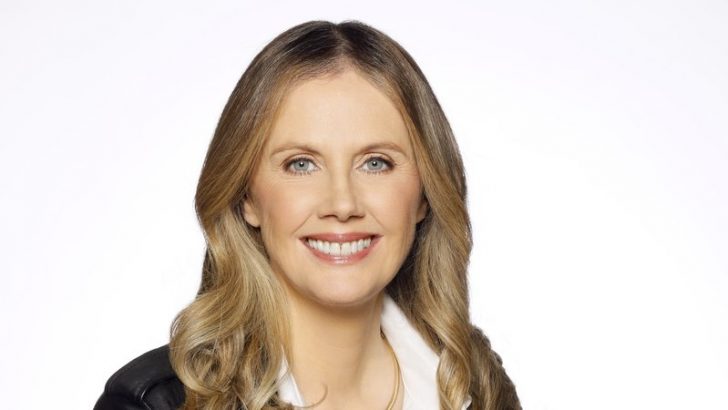I have three main go-to programmes every weekend when it comes to religious affairs. All three are on radio and all three had plenty of interest last week.
The Leap of Faith (RTÉ Radio One, Friday) was a particularly positive episode. The show featured an important interview with Catherine Wiley founder of the Catholic Grandparents Association. She pointed to a common problem – grandparents’ concern that their adult children were not having their own children baptised or brought up in the Faith. During lockdown her group had brought concerned grandparents together in an online faith café (still going), which provided a supportive community. We are the children of the 1960s she said, ironically suggesting they were supposed to be the wild ones! Now, she said, we had lost our confidence in how to pass on faith and be models of faith, with parents assuming it was the schools’ responsibility and schools assuming it was the parents’ job, which of course it is, primarily.
Michael Comyn also interviewed Fr Bryan Shortall OFM Cap. about the impending easing of the main restriction on public worship. Fr Shortall was looking forward very much to having his parishioners back in the church, but, though welcome, it was in a way a stressful prospect as there would be limitation on numbers and a need for other protective measures. He was particularly positive in relation to the online engagement that had occurred during lockdown, with hundreds logging in on a global level. He hoped this would continue at some level. Mr Comyn asked him a question that surprised and impressed me – “Who’s been looking after you and your colleagues?” And yes, they were looked after – first-off he lived in a community and learned to cook in his formation days. Secondly there were parishioners who dropped food around to them.
Mr Comyn also quoted Church of Ireland Archbishop Michael Jackson as saying that he was “rejoicing” in the return of public worship. The issues were much the same for Shaykh Dr Umar Al-Qadri and his Muslim community in Ireland. The restrictions on mosque attendance were sorely felt, and he expressed disappointment that places of worship were so restricted when they were not so in other European countries, where in some cases Covid-19 cases were more numerous. All contributors seemed optimistic about the future.
Sunday (BBC Radio 4) also looked at the re-opening of mosques, this time in Britain, but it was in the context of a controversy – in some mosques women had been excluded from congregational prayers. Campaigner Julie Siddiqi had been so excluded and was not staying quiet about it. She described being angry, upset and feeling let down. One mosque issued a statement to the effect that congregational prayer was an obligation for men, but not for women, so with Covid-19 related restrictions in place it was felt appropriate to maximise the space for men, but Ms Siddiqi wasn’t impressed with this line of argument, and was critical of a more general exclusion of women in some British mosques.
There was also an interview with Dr Krzysztof Charamsa, formerly a priest with the Congregation of the Doctrine of the Faith and now a campaigner for LGBT causes, and in a same sex relationship. He threw around more accusations of homophobia than I’ve heard in a long time. Considering his background, I was surprised that he thought “a Pope can change everything”. He had been asked if he thought Pope Francis was more open pastorally and emotionally to LGBT people, and was inclined to believe that, but of course that’s a long way from the doctrinal change he was seeking. And I did find his re-interpreting of certain Scriptural passages rather unconvincing.
Later that morning Sunday Sequence (BBC Radio Ulster) featured an informative and detailed look, with professors Jon Tonge and Laurence Kirkpatrick, at the role of evangelicals and Paisley-founded Free Presbyterians in Northern Ireland politics, especially in the Democratic Unionist Party (DUP). This was in the context of this week’s election for a new leader of that party. The historical background was really interesting, but when the beliefs of these groups were being discussed I thought it would have been more useful, even respectful, if they had a representative of these groups to speak for themselves rather than having them characterised as right-wingers and fundamentalists (not saying they aren’t, in terms of factual description).
The reference to “these people” sounded rather condescending.
Pick of the week
Sunday Sequence
BBC Radio Ulster Sunday May, 16 8.30 pm
Topical religious and ethical issues, often with a Northern Ireland flavour.
Liberating a continent: John Paul II and the fall of communism
EWTN Sunday May 16, 9 pm
A documentary on St John Paul II’s role in the collapse of communism and the liberation of central and eastern Europe.
Sunday Morning Stories
BBC One Sunday May 16, 10.30 am
The Rev. Kate Bottley shares a collection of inspirational stories, rooted in faith, hope and spirituality.


 Brendan O’Regan
Brendan O’Regan Audrey Carville, presenter of Sunday Sequence on BBC
Radio Ulster.
Audrey Carville, presenter of Sunday Sequence on BBC
Radio Ulster. 